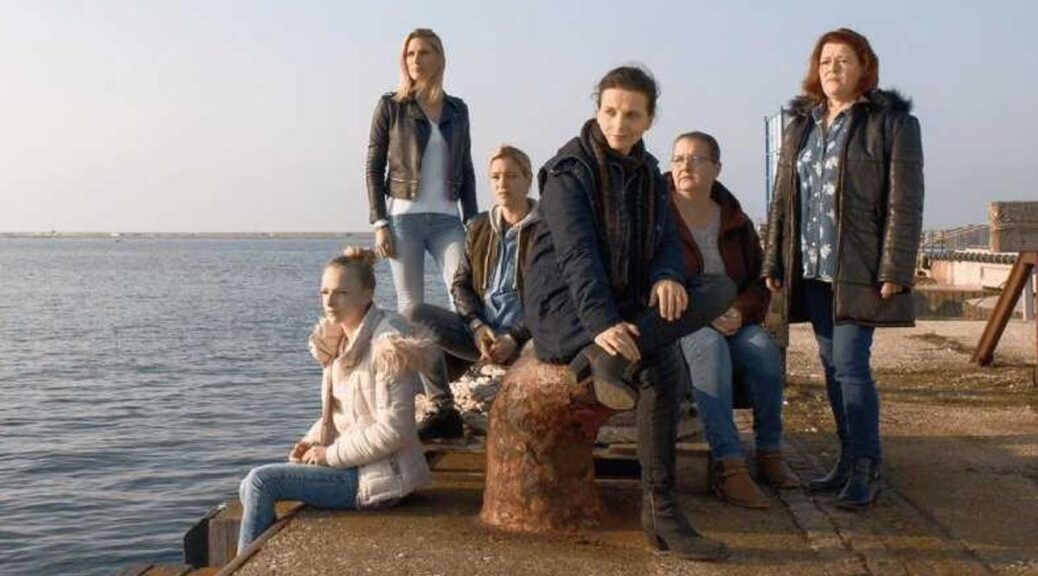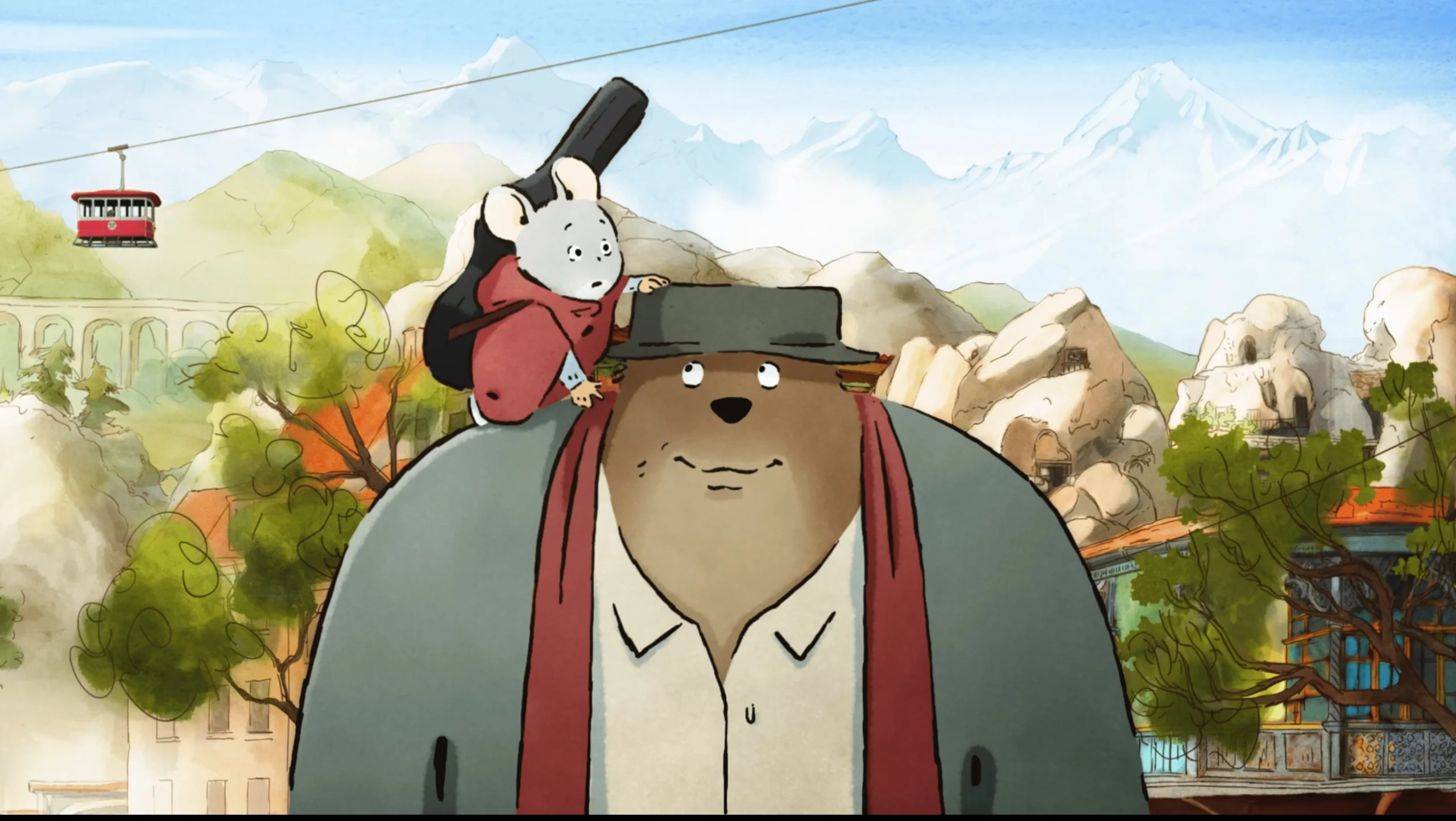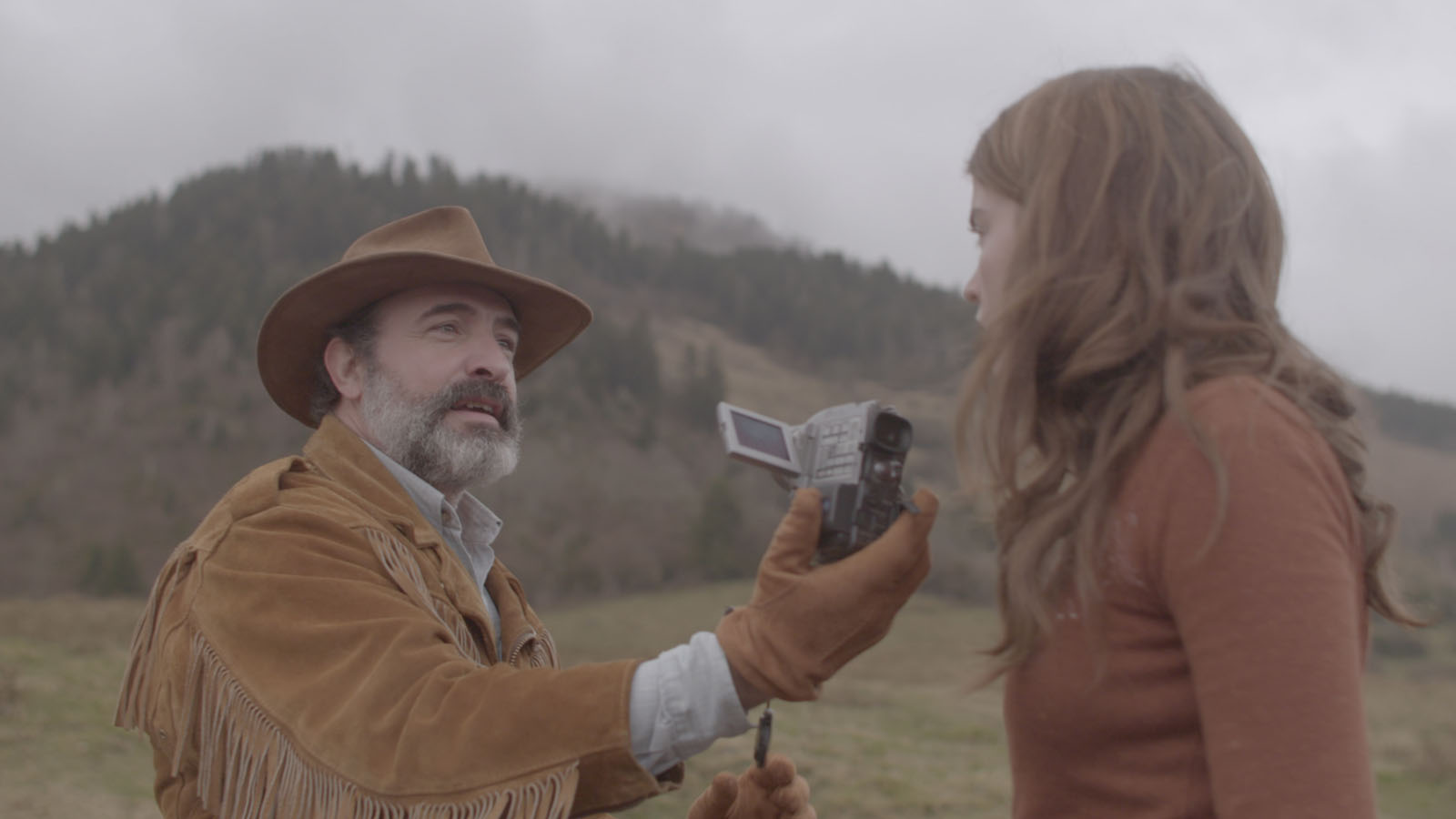Between Two Worlds
by George Wolf
You’ve probably already guessed that Juliette Binoche is excellent in Between Two Worlds (Ouistreham). Her turn as Marianne is effortlessly human and engaging while she keeps the cliched trappings of a “brave” performance at bay.
The Oscar-winner doesn’t bother with her hair and makeup! And, she’s often seen scrubbing toilets as part of a “commando” cleaning crew. Earning only minimum wage, Marianne and her co-workers have only 90 minutes to clean rooms on the cruise ships that dock in the port city of Caen, France.
Marianne is the newbie on this crew, as her life of leisure ended when her husband left her for a younger woman, forcing her to return to the workforce after more than two decades. Marianne becomes a trusted member of the work family, forming an especially tight bond with the gritty Chrystèle (Hélène Lambert, excellent) a single mother with unwavering drive to provide for her kids, whatever it takes.
Chrystèle doesn’t have time for indulgences like the side trip to the beach that her new friend insists upon, which should have been the first clue that Marianne is not what she’s pretending to be.
She – just like French journalist Florence Aubenas, author of the source work – is an accomplished author, posing as a working stiff to conduct first-hand research for a book on the rising uncertainty of the French economy. That book became a best-seller, and director/co-writer Emmanuel Carrère brings it to the screen with a strange mix of empathy and tone deafness.
Carrère and his authentic ensemble make sure we feel the desperation of the workers, and share in their happiness when one of their own lands a better opportunity and leaves the nest. And though we also share in the hurt when Marianne is found out, the film itself never holds her truly accountable.
Sure, she’s sad, but mainly because her friend Chrystèle won’t forgive the abuse of trust. Credit Binoche for giving Marianne enough layers to make the question of “ends justifying the means” even plausible, but how the film works for you may ride on your own experience with both of the lifestyles.
Are the “invisible people” fair game as long as you feel bad about it? Even if Aubenas still thinks so, Between Two Worlds could have put a little more trust in the audience rank and file.












